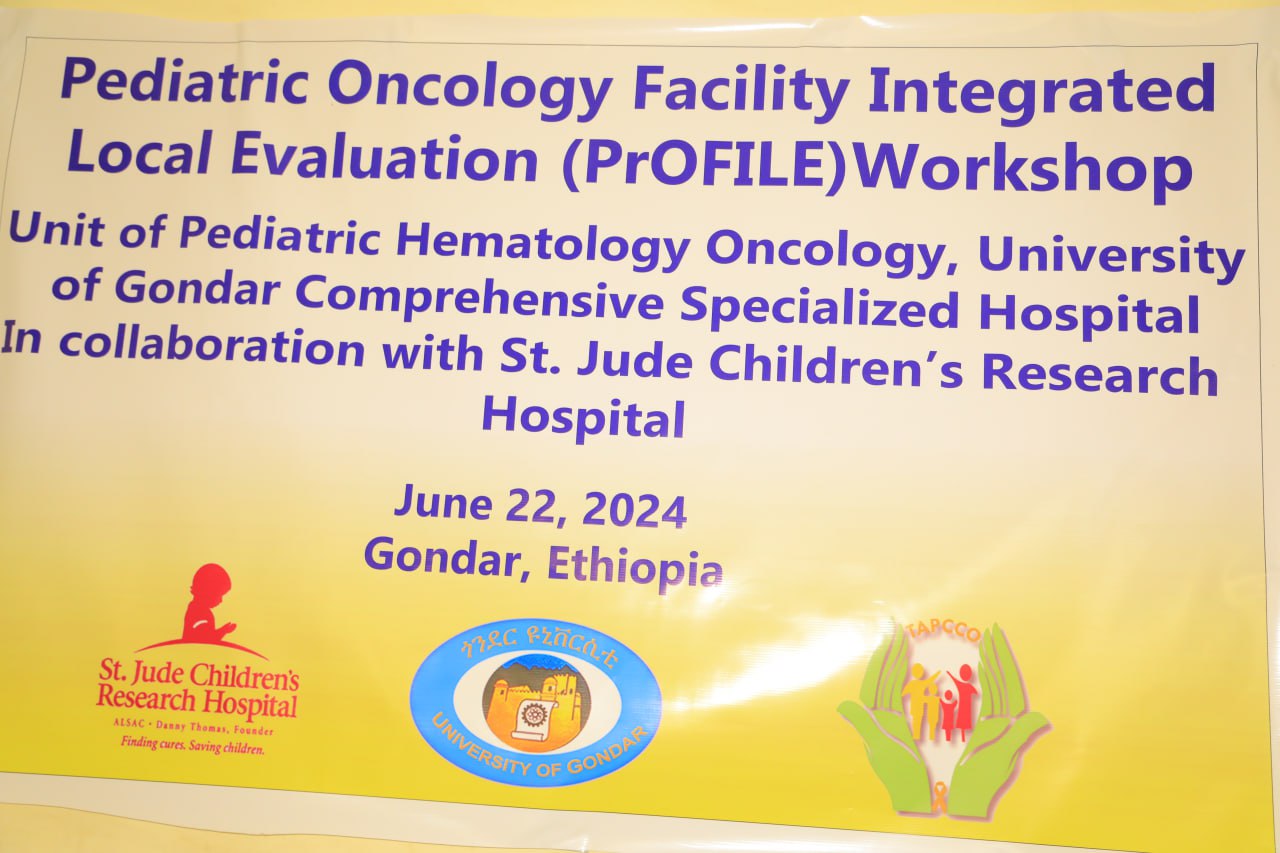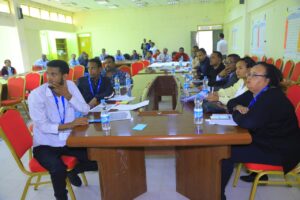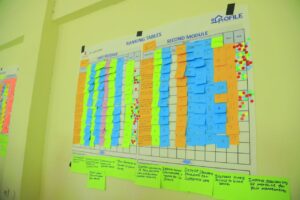
University of Gondar Comprehensive Specialized Hospital Conducts Workshop on Pediatric Oncology Facility Assessment
The University of Gondar Comprehensive Specialized Hospital conducted a workshop on June 22, 2024, on the Pediatric Oncology Facility Integrated Local Evaluation (#PrOFILE) self-assessment tool developed by the Metrics and Performance Unit at the Department of Global Pediatric Medicine at St. Jude Children’s Research Hospital.



#PrOFILE is a comprehensive evaluation resource for health-system delivery. It assists care teams and institutions define strategies to enhance childhood cancer survival. The assessment covers various aspects of childhood cancer care delivery, including diagnostics, finances, resources, service capacity, and integration.
The workshop aimed to prioritize opportunities for improvement over the next year, three years, and five years. Dr. Mulugeta Ayalew, Head of the Pediatric Hematology-Oncology Unit and physician lead for the #PrOFILE project, emphasized that #PrOFILE serves as a diagnostic tool, identifying key issues and solutions to enhance Pediatric Hematology and Oncology care at the center.
The Pediatric Hematology-Oncology Unit at the UoG compiled data and involved multiple departments and stakeholders in assessing the different aspects of childhood cancer care delivery through structured questionnaires. The local assessment team and St. Jude profile team have identified strengths and opportunities in childhood cancer care delivery.
@Dr. Kidist Goshime, the site coordinator for the PrOFILE project, presented an overview of the project exercise. She explained the tool’s design and how the quality improvement exercise would be conducted. The tool comprises 12 modules that assess national and facility contexts, finances and resources, personnel, service capacity, service integration, chemotherapy, supportive care, surgery, radiotherapy, diagnostics, and patient outcomes.
From over 120 identified opportunities, workshop participants ranked and voted on priority areas. Using an impact-effort exercise, they developed action plans for the upcoming year, three and five years.
The first-year action plan prioritized improving access and increasing funds for chemotherapy, enhancing access to blood bank services, reducing deaths from infectious complications, and establishing a multidisciplinary pediatric oncology tumor board for emergency cases.
For the next three years, the focus will be on training specialized pediatric oncology nurses, developing systems to increase access to radiotherapy, expediting diagnostic confirmation processes, reducing treatment abandonment, and improving case registration.


The workshop brought together more than 48 participants from different hospital departments, units, coordinating services, and national and regional stakeholders.


